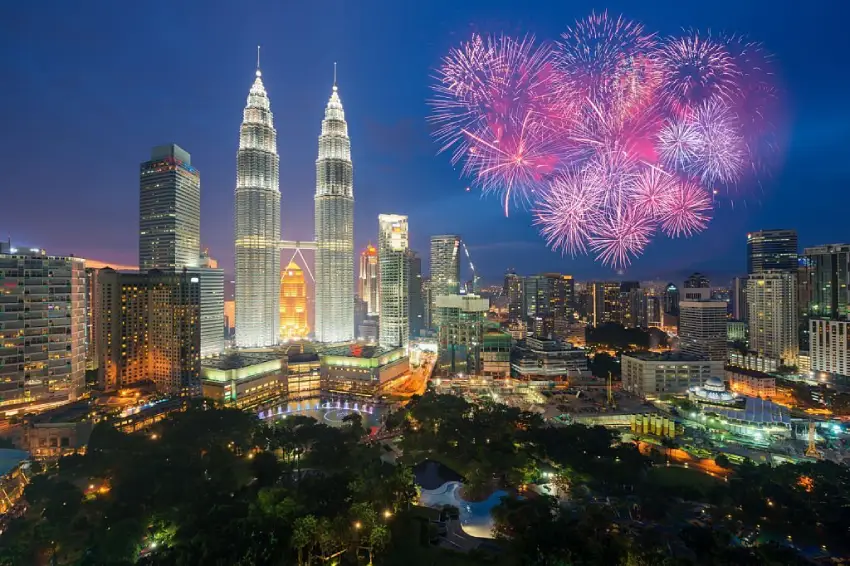Malaysia is famous for its distinctive heritage and culture. The country is a fusion of East and West, where the two cultures mix to celebrate. The weather is tropical all year round, making it the perfect place to hold festivities all year long. The crowd of the country is multicultural and welcoming to celebrations of all kinds. If you are planning to attend one of Malaysia’s many festivals or events, then you will need to plan a trip to the country. There are public holidays in a year, which are the celebrations most celebrated in the world because they are so widely marked there. The top festivals are listed below:
1. Thaipusam
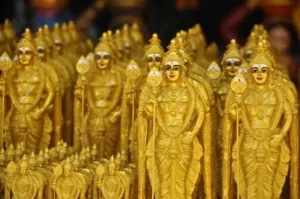
One of the most significant holidays for the Tamil Hindu community is Thaipusam. This celebration, which is observed in Kuala Lumpur’s Batu Cave, honors Lord Muruga’s victory over the wicked devil Surapadman as well as the victory of good over evil. Folk melodies, traditional dances performed on the grounds of the temple, and lengthy processions all mark the celebration. The tradition of body piercing is the highlight of this Malaysian event. Giant spears, hooks, and lances are used in this rite to puncture devotees’ mouths, cheeks, and other body parts in an effort to appease the Lord. The worshipers are carrying a Kavadi, a miniature ceremonial home. One of Malaysia’s odd festivals is this one.
2. Chinese New Year
One of the most significant festivals in Malaysia is the Chinese New Year, which is a two-week-long holiday. The city is decorated in red and gold, and parades that feature lion and dragon dances are frequent occurrences. In addition to offering prayers in temples for good fortune and wealth, families are motivated to purify themselves of dirt and ill luck. Keep off demons and beaten drums in this ceremonial. At this festival, the nightly fireworks displays are breathtaking.
3. Malaysia Water Festival
The Malaysia Water Festival is a one-month-long celebration of joy along the country’s multiple beaches, allowing visitors to experience the thrill of surfing the waves and playing on the shoreline. This festival is an ideal destination for those seeking to participate in coastal activities, such as kayaking, sandcastle-building, fishing, and more. It is truly remarkable to witness the immense, world-renowned sandcastles that have been constructed.
4. Wesak Day
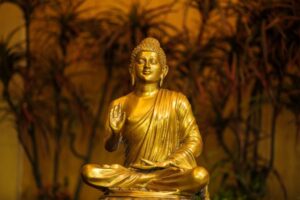
One of the important Buddhist holidays in Malaysia is Wesak Day. It honors the occasions of Buddha’s birth, enlightenment, and demise. A day for contemplation and introspection. Parades and peaceful prayer sessions are held to commemorate the day. Buddha’s golden statues are submerged in water to wash away negative ideas. At monasteries, incense, candles, and flowers are offered as a sign of life’s passage. The eight-fold road of peace, acceptance, and brotherhood is a subject of meditation for followers of the Buddha. They promise to protect the religion’s high ideals.
5. Kaamatan Harvest Festival
It is the first harvest festival in Malaysia. It is a celebration of the Kadazan and Dusun tribes’ economic success. Every year in Sabah, this pagan ceremony is performed. Visitors can take advantage of the quantity of cuisine, which includes, among other things, Bambangan, which is plucked fruit, and Hinava, which is fish and rice. Additionally, traditional dance performances are presented in open spaces, with performers donning traditional tribal garb. The unduk ngadau pageant is attended by local ladies who compete for the title. The celebrations continue after that.
6. Dragon Boat Festival
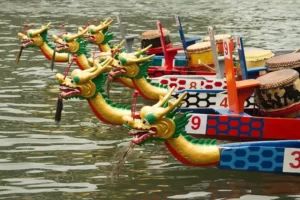
At the Penang Dragon Boat Festival, which is the most well-known dragon boat festival in Malaysia, fleets of long, colorful boats are rowed one after the other on the calm waters of the Teluk Bahang Dam. This festival, which also includes a carnival, has international racers from South East Asian nations and Australia. The street cuisine and crowd shouts during this festival in Malaysia nicely complement the noisy, energized mood.
7. Gawai Harvest Festival
This Sarawak-based Malaysian festival honors the traditional pagan harvest of the Murut, Kayan, Bidayuh, and Iban tribes. It is observed yearly throughout Sarawak. Large-scale eating and open houses in the hamlet, as well as a variety of Kumang or Keling Gawai beauty pageants for both men and women, serve as markers of the event. These beauty pageants offer a chance to display traditional tribal dress.
8. Hari Raya Aidilfitri
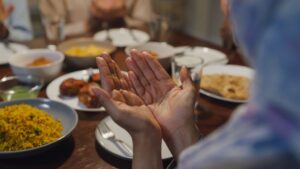
During the time of Ramadan, it is the holy month during which Muslims fast, Malaysians celebrate Hari Raya as their national holiday. The holiday is celebrated for two days, starting with feasting. Major feasts are held, featuring traditional Malaysian dishes such as Satay and Lemang, as well as sticky rice rolls and Ketupat. Entrance to these feasts is usually open to all, and houses and mosques are decorated with lights. It is one of the most popular celebrations in Malaysia, with over half of the population being Muslim.
9. Independence Day/National Day
An important national holiday in Malaysia is Hari Merdeka, or National Day in Malay. The day the Federal Republic of Malaya became Independent from the British Rules of Malaya is commemorated. The country of Malaysia was established as more areas were given to it during the succeeding years. Long, vibrant parades in the capital cities of Kuala Lumpur and Putrajaya, as well as free concerts in parks and convention halls, honour National Day.
10. Moon-cake Festival
This Chinese harvest celebration, also known as the Mid-Autumn celebration, is held to express gratitude to the moon goddess Chang Er for abundant harvests. If you want to catch some of the best views, you might be like a show where hundreds of paper lanterns are released into the night sky. At the same time, spectators enjoy delectably fluffy moon cakes and kite flying, which is the most captivating aspect of this celebration in Malaysia.
11. Deepavali
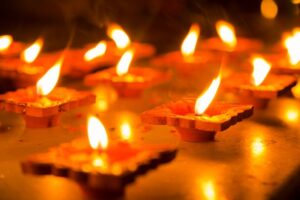
Deepavali is one of the most popular Hindu holidays in Malaysia, often known as the festival of lights. At night, fireworks are set off, and lights and decorations are placed on residences. The placement of large, colorful kolams (colored rice powder designs) in front of temples and houses represents the triumph of good over evil. Individuals lighting lamps, candles or diya in their homes and temples, which represent the defeat of sins/evil, also serves to celebrate the festival. A range of Indian delicacies, including Samosas, Jalebi, and Murukkus, are available for consumption to mark this auspicious event, offering a memorable culinary experience.
12. Christmas
Malaysia is quite enthusiastic about its holiday celebrations. Tinsel, Christmas trees, and lights are used to decorate homes, shopping centers, churches, and streets. The festive ambience will undoubtedly enchant visitors as carolers cruise the streets singing well-known songs, even if there is no such thing as a White Christmas in the tropical country. Additionally, Kuala Lumpur offers a wide range of festive goods to Christmas buyers. If you like to do shopping in Malaysia, so maybe you would love this page.
13. Rainforest World Music Festival
This well-known Malaysian tribal/rock music festival takes place in the midst of nature in Sarawak. It is ideal for a quick trip to music and joy, offering world-class venues with emerging Malaysian and international musicians.
In conclusion, attending Malaysian festivals offers a singular and alluring window into the nation’s rich culture and traditions. Each festival’s diversity and individuality serve as a visual representation of how this multi-ethnic country’s various races, religions, and traditions co-exist together. Each festival serves as a reminder of Malaysia’s rich cultural heritage, from the vibrant Deepavali celebrations of the Malay Indian population to the vibrant Chinese New Year celebrations and the mid-autumn Festival of the Malay Chinese. These festivals not only give guests the chance to watch traditional dances, eat delicious food, and observe ancient rituals, but they also help to unite and understand diverse people, thereby reducing barriers and building a sense of belonging. Additionally, the inclusiveness of these celebrations allows guests from all backgrounds to take part, producing a unique cultural experience.
The festivals in Malaysia serve as a reminder of the need to protect and value culture, in addition to paying homage to the nation’s pride and long-standing customs. Due to the fact that they entice travelers from all over the world who want to experience Malaysia’s rich cultural history, they play a significant role in the nation’s tourism economy. Overall, sharing and participating in these festivals is a thrilling voyage through Malaysia’s alluring culture that leaves unforgettable impressions of its rich diversity and welcoming people. Even you can read our latest blog pages where you can explore about places to travel in Malaysia.

